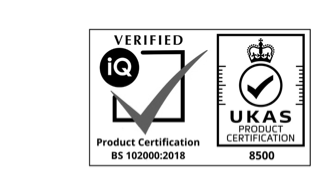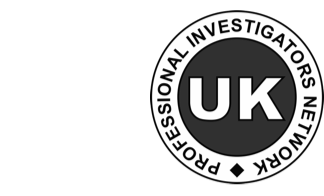The political landscape in the UK is abuzz with discussions about various policy proposals as the general election approaches on July 4th, 2024. One of the most talked-about proposals comes from the Labour Party, which aims to introduce Day-One Rights. This proposed change would remove the qualifying periods for basic rights such as unfair dismissal, sick pay, and parental leave. If implemented, these changes are designed to strengthen employee protections, ensuring that all workers, regardless of the length of their employment, have immediate access to fundamental rights.
What is an Unfair Dismissal Claim?
An unfair dismissal claim occurs when an employee believes they have been terminated from their job without a fair reason or without the employer following the proper procedure. With the proposed Day-One Rights, any employee, regardless of how long they have worked for a company, could file for an unfair dismissal claim. This makes it imperative for employers to have a solid basis for any dismissal decision and to follow legal protocols meticulously.
What Would ‘Day-One Rights’ Mean for Employers?
The proposed ‘Day-One Rights’ would mean that employees could claim unfair dismissal regardless of how long they have been employed. This shift would place a greater responsibility on employers to make well-informed and justified decisions when considering the dismissal of an employee. The absence of a qualifying period for unfair dismissal claims means that any dismissal, if deemed unjustified, could lead to legal challenges, resulting in potential financial and reputational damage to the business.
Given this potential change, employers must ensure that any decision to dismiss an employee is backed by substantial and credible evidence. This is where the role of a private investigator becomes crucial.
What Impact Would Day-One Rights Have on Employee Investigations?
Rise in Unfair Dismissal Claims:
One of the most immediate impacts would be a rise in unfair dismissal claims. With the removal of the qualifying period for these claims, more employees would be eligible to challenge their dismissals. This means that any dismissal, regardless of the employee’s length of service, could potentially lead to a legal dispute. Employers would need to be more vigilant and thorough in documenting the reasons for termination and ensuring they adhere to fair procedures.
Increase in Malingerers Fabricating Claims:
Another significant concern is the potential increase in malingerers who seek employment with the intention of fabricating a claim. Without the need to work for a mandatory period before being eligible to file an unfair dismissal claim, these individuals could exploit the new system to secure compensation without having made a genuine effort to contribute to the company. This could lead to an increase in fraudulent claims, putting additional pressure on employers to verify the legitimacy of sickness or misconduct claims thoroughly.
The Role of Private Investigators in Employee Investigations
Gathering Evidence with a Private Investigator:
Private investigators can play a pivotal role in supporting employers with employee investigations. When a company suspects that an employee may be dishonest about their illness to take long-term sick leave, it is essential to gather concrete evidence to substantiate these claims. Private investigators are trained to conduct thorough and discreet investigations, providing employers with the information they need to make informed decisions.
Supporting Dismissals
The evidence gathered by a private investigator can be instrumental in supporting the reason for dismissal. If an employer decides to dismiss an employee based on the evidence of misconduct or dishonesty, having detailed and documented proof can strengthen the case. This is particularly important in the context of Day-One Rights, where the employee can challenge the dismissal regardless of their tenure.
The Importance of Professionalism and Confidentiality in Private Investigations
When engaging a private investigator, it is crucial to choose a professional and reputable agency. The investigation must be conducted ethically and within the bounds of the law. Confidentiality is also paramount to protect the privacy of all parties involved and to maintain the integrity of the investigation.
A private investigator’s report can provide the employer with the confidence needed to proceed with a dismissal, knowing that the decision is supported by factual and unbiased evidence. This reduces the risk of legal challenges and helps ensure that the process is fair and transparent.
Preparing For Changes in Employment Law
As the general election approaches, the Labour Party’s proposal for Day-One Rights highlights the importance of employers being prepared for potential changes in employment law. By regularly reviewing sickness policies, disciplinary and grievance procedures employers can ensure that they have the tools address these issues. In particularly troublesome cases by leveraging the expertise of private investigators, employers can gather the necessary evidence to support their decisions, thereby reducing the risk of unfair dismissal claims and ensuring compliance with future legal standards.
As businesses navigate these potential changes, it is essential to recognise the value of thorough employee investigations. Investing in professional investigation services not only helps protect the company from potential legal challenges but also promotes a fair and just workplace environment. With the right evidence, employers can make informed decisions that uphold both the rights of the employee and the interests of the business.
For any company facing challenges related to employee misconduct or dishonesty, engaging an accredited private investigator can be a critical step in ensuring that decisions are based on solid evidence, ultimately safeguarding the business in the era of Day-One Rights.

 Surveillance
Surveillance Matrimonial Investigations
Matrimonial Investigations Bug Sweeping
Bug Sweeping GPS Vehicle Tracking
GPS Vehicle Tracking Lie Detector Test
Lie Detector Test Person Tracing
Person Tracing Employee Investigations
Employee Investigations Asset Tracing
Asset Tracing Fraud Investigations
Fraud Investigations Injury & Insurance Investigations
Injury & Insurance Investigations







